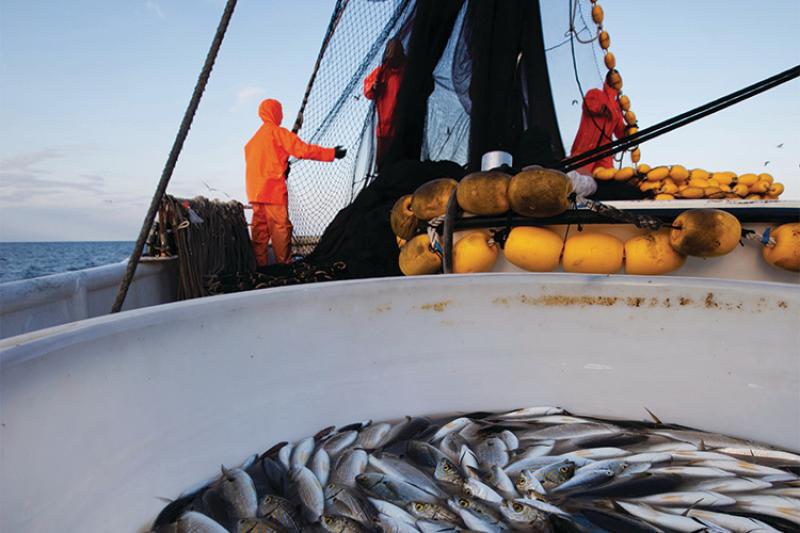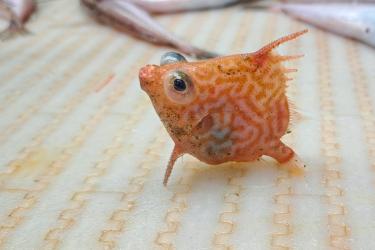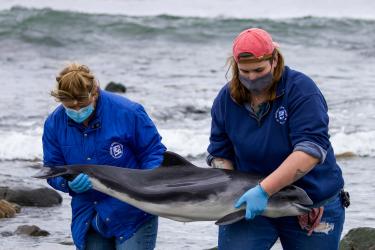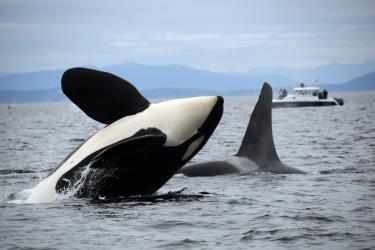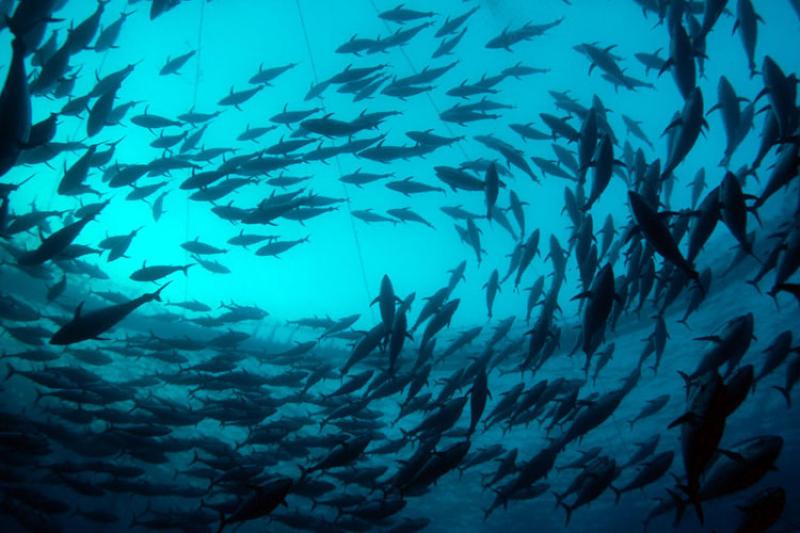The United States has some of the best managed marine fisheries in the world. With that leadership comes the opportunity and responsibility to advance sustainable conservation and management practices on the high seas and, as appropriate, to support other nations in achieving similar outcomes in their economic zones. NOAA Fisheries, through the work of our Office of International Affairs and Seafood Inspection—along with our national program offices, regional offices, fisheries science centers, and international partners—leads the nation’s efforts in achieving globally sustainable resources and conservation of living marine resources while ensuring U.S. fishermen’s access to high-seas fisheries.

Much of this is achieved through bilateral engagement, participation in regional fishery management organizations, other multilateral conservation fora, and scientific exchanges. But we also use our role as a major importer of seafood by enforcing laws requiring seafood exported to the United States to originate from fisheries that have comparable conservation measures in place. Over the past year, the Office of International Affairs and Seafood Inspection has worked to implement two new regulations:
-
The Seafood Import Monitoring Program, which established traceability requirements for certain priority fish species entering U.S. commerce.
-
The international import provisions of the Marine Mammal Protection Act, which require that seafood exported to the United States is from fisheries with measures in place to reduce the bycatch of marine mammals that are comparable in effectiveness to U.S. measures.
We are dedicated to the implementation and administration of these regulations and have engaged the governments and seafood producers of more than 100 nations this past year to explain the requirements of these regulations and gather information about their fisheries. In addition, we issued a report to Congress on international compliance with another law intended to combat illegal, unregulated, and unreported fishing, to reduce the bycatch of protected species, and to ensure adequate shark conservation measures on the high seas. These efforts will achieve meaningful results in ending illegal fishing, advancing sustainable fisheries management, and protecting marine species. They will also ensure that U.S. fishermen in the United States and elsewhere who bear a heavy burden to achieve these outcomes in the United States will compete on a more level playing field.
While NOAA Fisheries works to leverage U.S. demand for seafood to achieve conservation benefits, we also work to ensure the competitiveness of U.S. seafood producers in the global marketplace. Through our membership in several regional fishery management organizations, we work to ensure continued access to high seas resources by U.S. fishermen and seafood processors. As the competent authority to issue health and catch certificates for seafood exported from the United States, we help protect and advance the excellent reputation of U.S. seafood in global markets, and strive to ensure, often through negotiated agreements with export market nations, fair and efficient access to those markets. This past year, NOAA Fisheries worked with the Government of Canada and our nations’ lobster industry to successfully defeat efforts to block exports of live American lobster to the European Union. We also resolved issues blocking access of U.S.-produced Dungeness crab, geoduck, and oysters to markets in China. NOAA Fisheries will continue to engage internationally to maintain and improve the competitiveness of U.S. seafood in global markets.
NOAA Fisheries’ primary focus is management and conservation of domestic marine resources, and the health of those resources is a testament to its successful and ongoing achievement of those objectives. For those of us who work in the international arena, there is no stronger foundation upon which to advance the sustainability of global marine resources, nor is there a better story to tell to promote the sustainability and competitiveness of U.S. seafood across the globe.
